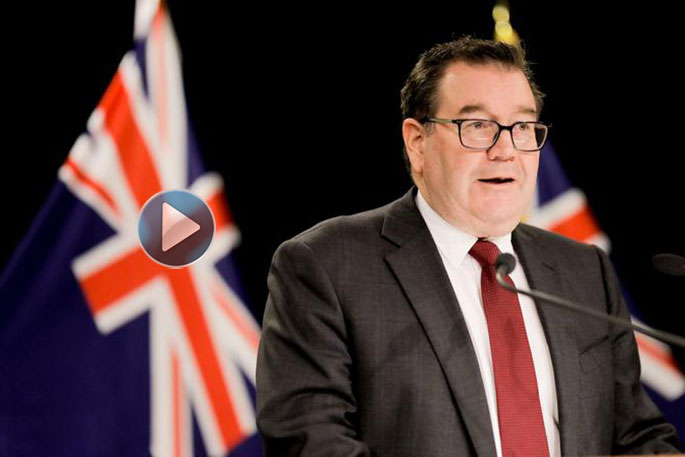Council ownership of water entities has been confirmed by the Government as part of the Three Waters Reform.
The majority of the 47 recommendations from the Three Waters Working Group have been accepted by the Government.
Three Waters Reform will see the country's 67 council-owned and managed water service providers combined into four publicly owned entities.
There were concerns around ownership and privatisation, which lead the working group to recommend a shareholder model, where councils' would get one share per 50,000 people.
Under this model Tauranga City Council, with a population of 155,200 will get four shares in Entity B and the Western Bay of Plenty District Council will get two shares because of its population of 58,100.
'Fundamentally these reforms are about delivering clean and safe drinking water at an affordable price for New Zealanders. Without reform, households are facing water costs of up to $9,000 per year, or the prospect of services that fail to meet their needs,” says Infrastructure Minister Grant Robertson.
'Everyone accepts the need for change. You only have to look at the number of burst pipes, boil water notices and the volume of sewerage spewing into our harbours to see we can't carry on as we are and that our water infrastructure is crumbling.
'At the heart of councils' concerns have been the issues of ownership and voice, By accepting the majority of the recommendations made by the independent Working Group on Representation, including a shareholding plan, we have listened to these concerns and modified our proposals accordingly,” he says.
Local Government Minister Nanaia Mahuta says: 'The working group was tasked with addressing the issues of most concern to the sector and Cabinet has agreed to the majority of their recommendations that ensure councils, iwi and communities have a strong voice in the new entities”.
''I acknowledge the anxiety around change, but ratepayers and local communities cannot keep paying more and more for services that have been underinvested in for too long, and now put their health at risk.
'That's why the Government has extensively engaged with local government, iwi and hapū, the water industry for more than four years to understand the case for change and assess the best option for reform.”
'This is the best option to deliver the clean, safe and affordable drinking water New Zealanders deserve while also retaining community ownership and protecting against future privatisation,” she says.
In line with the working group's recommendations the Government will:
- Provide for a public shareholding structure that makes community ownership clear, with shares allocated to councils reflective of the size of their communities (one share per 50,000 people).
- Further strengthen and clarify the role of the Regional Representative Group; with joint oversight from local councils and mana whenua to ensure community voice and provide tighter accountability from each water services entity board.
- Maintain that board members are to be appointed based on skills and competency;
- Strengthen connections to smaller communities including through local sub-committees feeding into the Regional Representative Group, to ensure all communities' voices are considered as part of investment prioritisation.
- Recognise and embrace Te Mana o te Wai – the health and wellbeing of our waterways and waterbodies – as a korowai, or principle, that applies across the water services framework.
'The Regional Representative Group is not about ownership but rather ensuring community inclusion and voices are heard, securing a kaitiaki or guardianship role for the protection of our environment, and maintaining the focus on the long-term planning required for national infrastructure,” says Mahuta.
'It's a model that makes sense and is already working well.
'Without the changes we are making all the evidence points to a legacy of broken pipes, outdated sewage plants, and potential repeats of the tragic Havelock North gastroenteritis outbreak that killed four people and made thousands sick. This should not be the case in a first-world country,” she says.



0 comments
Leave a Comment
You must be logged in to make a comment.